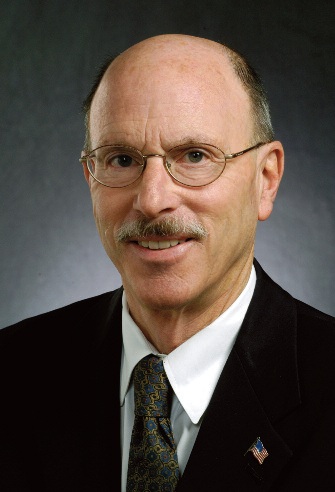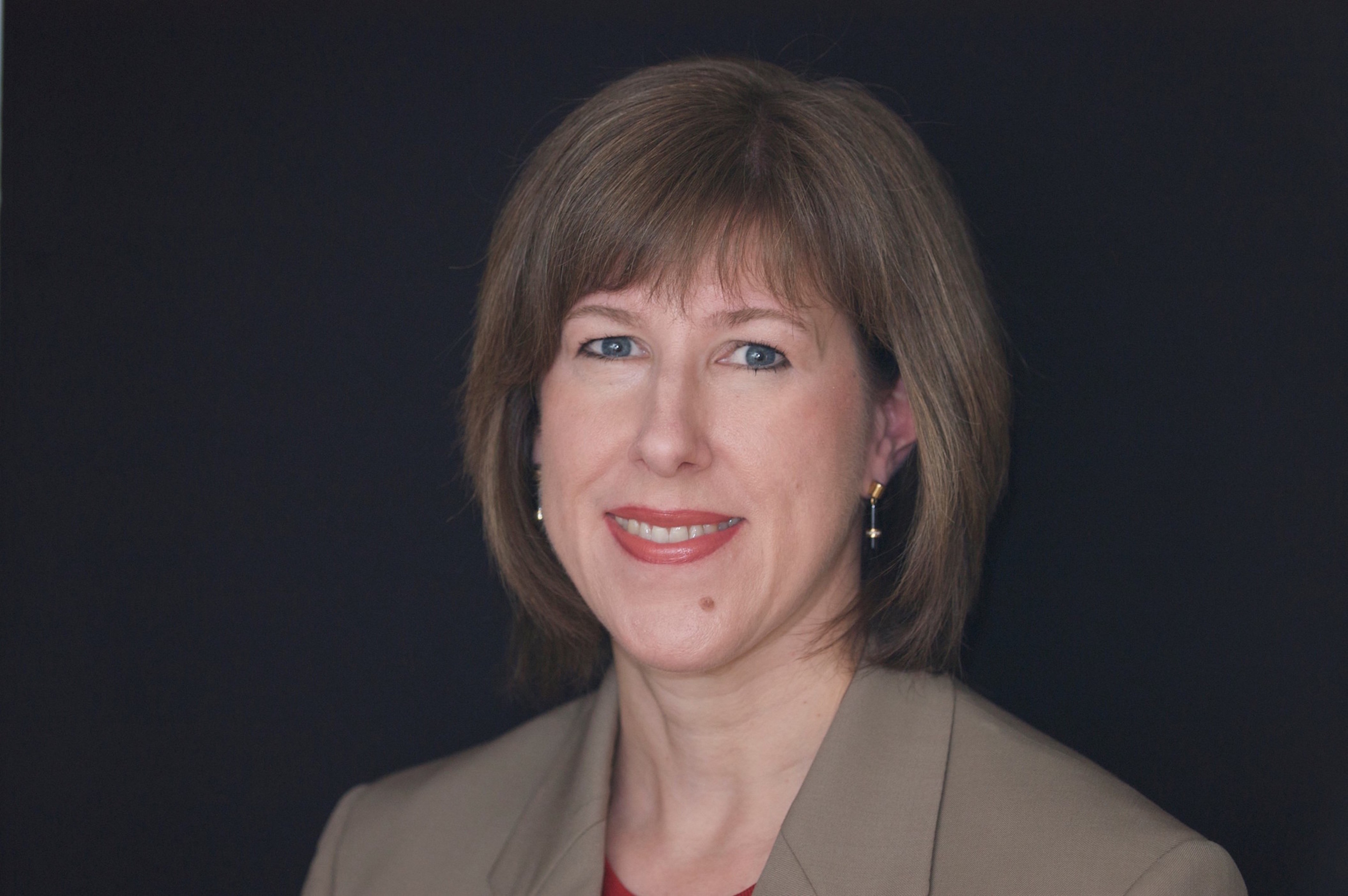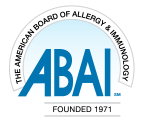President's Message: Stephen I. Wasserman, MD
Responding to Diplomate Concerns to Enact Positive Program Updates
by Stephen I. Wasserman, MD

Our Directors met in late April and there are a number of decisions they made that should impact you in a very positive way. As you might expect much of the meeting, held at the Westin O’Hare Hotel in Rosemont, IL, was focused on opportunities to improve Maintenance of Certification (MOC). As you know due to favorable market conditions we have been able to diminish the cost of our secure examinations by $200, and to now provide our peer/patient assessment tool and our Patient Safety modules free of charge. We are continuing to try to diminish the hassle factor for you as well and have simplified our processes for diplomate reporting of licensure status and CME accumulation. Beginning this summer diplomates will be able to report licensure status by attestation only and a hard copy of one’s license will be required only at the time of registration for the examination. In addition we will now permit 25 hours of CME in Allergy/Immunology annually to be claimed by attestation as well. ABAI will continue to electronically receive CME credits from the American Academy of Allergy Asthma & Immunology (AAAAI), American College of Allergy, Asthma & Immunology (ACAAI), Clinical Immunology Society (CIS) and Georgia Regents University. ABAI is happy to continue to receive any CME credits electronically but will not require any copies to be sent to the office. We continue to encourage CME that meets goals identified by assessment of knowledge or performance gaps, so called self-assessment CME, but this is not required. To assure compliance with these attestation processes, a small percentage of diplomates will be audited and requested to provide proof of CME in the old-fashioned way. The Board hopes these modifications will diminish time and paperwork demands on our busy diplomates.
Perhaps of more interest are the efforts that the ABAI Directors have made in examining our processes for the secure examination (Part III of MOC) and for Practice Assessment/Quality Improvement (Part IV of MOC). With regard to the latter we are working closely with AAAAI as they roll out their Quality Clinical Performance Reporting registry and plan to make participation in this registry, (which complies with CMS requirements for value-based payment), fulfill Part IV requirements as well—thus providing a two-fer
and diminishing redundancy in meeting MOC. The ABMS has begun working on task forces to examine the unique needs of military physicians, academic physicians especially those engaged in research, and physician executives. ABAI is active in these efforts with Dr. Gurjit K. Hershey serving on the academic physicians working group, and Dr. Wasserman serving on the physician executives group. In addition, ABAI has convened its own task force to make recommendations as to how to enable our academic physician scientists to meet Part IV requirements in a way that reflects their professional responsibilities.
With regard to the secure examination ABAI has begun to think hard as to how to respond to diplomate concerns that it no longer reflects practice realities and that the current system of administration in test centers can prove inconvenient and demeaning. The Directors have decided to explore a number of opportunities. First, we have reached out to the American Board of Dermatology (ABD) which piloted a test of their examination at home or in the diplomate’s office for a small cohort of their candidates to learn more about this process. This test required the capability to perform proctoring via the computer to assure the test taker’s identity was authenticated and that the integrity of the examination was not compromised. The acceptance of this process by test takers and the ABD was extremely high and almost all who tried it would do it again. ABAI will begin discussions as to how to provide our examination in a similar way. Second, we have also begun to discuss the possibility of developing a modular examination with a core of Allergy and Immunology questions for all examinees, and a second module that could be selected from a menu of options that would hopefully more closely reflect the practice scope of individual diplomates. Such options could include more advanced and focused questions in adult allergy, pediatric allergy, airway disorders (i.e., asthma, sinusitis, rhinitis), cutaneous allergy (i.e., urticarial/angioedema, atopic and contact reactions including ocular allergy) and immunodeficiency disorders and perhaps other areas as well. The ABAI plans to reach out to our diplomates to help us identify appropriate modules that seem most appropriate to you. This might prove expensive and obviously cost will guide our enthusiasm for this approach. Third, we have begun collaborations with the American Board of Dermatology, the American Board of Radiology, the American Board of Pathology and the pulmonary subspecialty committee of the American Board of Internal Medicine to obtain images that will permit highly pertinent clinical scenarios to dominate our examination questions. We sincerely anticipate that with the added dimension of high quality images our examination can more fully reflect the clinical reality of practice. Finally we have also begun to think hard about permitting use of reference materials during the examination – i.e., moving to an open-book exam. This requires an ability to identify appropriate materials and to make sure they are available to all exam takers. This is both a logistical and financial hurdle, but we have heard you and truly want to make sure this examination more closely resembles current practice realities. Toward this end we are monitoring similar efforts by other boards and examination entities to identify barriers and opportunities. This again may prove costly and its implementation requires us to examine changes in examination performance, and cost of developing and obtaining appropriate materials prior to implementation. But stay tuned, this will be an area of activity by the board.
Most importantly the ABAI Directors, Staff and I welcome your comments and suggestions on any of these topics. Your candid feedback has driven many improvements, and will do so going forward.
Please share your thoughts with me on this topic at abai@abai.org or swasserman@ucsd.edu.
Notes From the Chair
by Calman Prussin, M.D.

MOC: Keeping it Real
It is both an honor and a huge responsibility to serve as the 2015 chair of the ABAI Board of Directors. The board has two major responsibilities, to formulate and implement the Board Certification and Maintenance of Certification (MOC) programs and to administer policy regarding ABAI certification. The number and complexity of issues affecting the practice of Allergy & Immunology has increased, which is similarly reflected in the increased workload of the ABAI, including MOC. Recently, MOC programs have been the subject of much discussion. As such, my words will focus on the ABAI MOC program.
The ABAI is one of 24 member boards of the American Board of Medical Specialties (ABMS). In 2000, the ABMS member boards agreed that each board would develop an MOC program for their specific specialty's needs. The initial ABAI MOC rollout has generally received a positive reception, with some notable exceptions. To continue to improve MOC, last August the ABAI performed a SurveyMonkey® poll of all ABAI diplomates regarding MOC. Key criticisms included the overload of various MOC requirements and modules, the testing of factoids rather than clinical judgment in the secure exam, and cost. We on the ABAI Board of Directors are your colleagues; our role is to advocate for A&I diplomates to address the above concerns.
MOC 2.0
These past few years represent the first iteration of MOC. ABAI MOC is evolving and improving. We are looking to other boards and in some cases adopting their practices, as best fits A&I. A major goal of the ABAI is to further develop processes to minimize the amount of busy work required for MOC. As of this month, the ABAI Web Portal automatically captures CME from the AAAAI, ACAAI, CIS, and Georgia Regents University along with any RSL using either of these organizations for CME. These changes along with others detailed in Steve Wasserman’s President’s Message will dramatically reduce the busy work required of diplomates. Similarly, we are looking to increase the use of local Quality Improvement programs that are required in many practice situations, and co-purpose them for Part IV MOC credit.
The number of different MOC modules adds flexibility and choice, and allows some diplomates to use the same MOC module for both A&I and their parent boards. However, many diplomates also find the sheer number of choices overwhelming. Nick Van Kuren, the ABAI Manager of Technology is working to develop a new website layout with a simpler view of MOC choices. If you do have any questions about MOC do not hesitate to call the ABAI office. The ABAI staff has an expertise with MOC issues and is incredibly responsive to diplomate questions.
MOC must reflect diplomates’ practice of Allergy & Immunology. To that end we are constantly seeking to refine our current MOC modules and identify new modules that are relevant and valuable.
Looking Forward
We live in a fast-paced world filled with ever-present change and disruptive technology, all of which can leave one feeling off-balance. MOC is one of those changes. Such turmoil is also an opportunity to strengthen the practice of A&I and improve the delivery of medical care to our patients. The ABAI Board of Directors welcomes your feedback on how we can continue to develop MOC to advance the practice of Allergy and Immunology.
ABAI Welcomes Class of '20 Directors
The ABAI Board of Directors met in Philadelphia, PA, in October of 2014 for their annual meeting. At the meeting, the ABAI welcomed two new directors to serve on their BOD through 2020.


Dr. Theodore M. Freeman, MD
Theodore M. Freeman, MD, a graduate of Duke University and the University of South Florida College of Medicine is owner/practicing physician at San Antonio Asthma & Allergy Clinic, Medical Director of the Medical Lab at Lifecare Hospital of San Antonio. He is the current President of the Texas Allergy Asthma and Immunology Society and also serves as Case Reviewer for the Texas State Medical Board.
Dr. Freeman is a retired United States Air Force (USAF) Colonel having served 20 years as a USAF physician. His experience includes 11 years at Wilford Hall Medical Center (WHMC), San Antonio, TX, as Chairman of the Allergy Immunology Department, 14 years as Chairman of Fellowship Training Program WHMC, and 11 years as the Medical Director of the Immunology Laboratory WHMC.
Other posts held are current Chairman of the Office of Practice Management for the American Academy of Allergy Asthma and Immunology, and Chairman of the North East Independent School District Medical Advisory Board.
Dr. Freeman brings expertise in the areas of hymenoptera allergy and anaphylaxis to his ABAI directorship.
Dr. Kathleen R. May, MD
Dr. Kathleen R. May received her MD degree from Northeast Ohio Medical University in 1990. She completed her residency in pediatrics in 1993 at East Carolina University, Greenville, NC, and her fellowship in 1995 at National Jewish Center, Denver, CO. She currently practices in Cumberland, MD, where she is affiliated with Western Maryland Regional Medical Center.
Dr. May is a fellow of the American College of Allergy Asthma and Immunology (ACAAI) and American Academy of Allergy Asthma and Immunology (AAAAI), and serves as current Speaker of the ACAAI House of Delegates. She has been elected to the Board of Directors of the ACAAI Advocacy Council (formerly JCAAI), and is immediate past website editor of acaai.org. She is current and former chair of numerous national committees.
She is the recipient of the Distinguished Fellow Award (ACAAI), 2010, Woman in Allergy Award (ACAAI), 2012 and Distinguished Service Award (ACAAI), 2014.
Dr. May brings clinical interests paralleling the community-based practice of allergy/immunology to her post at ABAI.
Departing Directors Celebrated for their ABAI Accomplishments
At their Annual Board of Directors (BOD) Meeting held in Philadelphia, PA, in October 2014, the ABAI celebrated the service of two directors who concluded their six-year terms. John M. James, MD, and Stephen F. Kemp, MD, served on ABAI's BOD from 2009-2014 in a variety of roles that ranged from item writing and exam construction to shaping Maintenance of Certification (MOC) and establishing standards for conjoint board credentials and residency review requirements.

Dr. James, of Colorado Allergy and Asthma Centers, Fort Collins, CO, served as the Chair of the Maintenance of Certification (MOC) Committee from 2010-13. He was also past Chair of the Nominating Committee and Ethics & Professionalism Committees, and a member of the MOC, Nominating, Conjoint Credentials, and Ethics & Professionalism Committees during his term.
Dr. Kemp, of the University of Mississippi Medical Center, Jackson, MS, served as the Secretary of the ABAI Board of Directors from 2011-13. During his six-year term, he was a member of the Finance, Personnel, Nominating, Ethics & Professionalism, MOC, and Conjoint Credentials Committees.
ABAI Updated Medical License and CME Submission Procedures
In an effort to reduce the administrative burden on diplomates the ABAI Board of Directors voted at the Spring 2015 Board meeting that diplomates enrolled in the ABAI MOC Program will NO LONGER BE REQUIRED to submit copies of their medical license or CME certificates annually. However, if you choose, you may continue to use the diplomate web portal as a repository to track your CME activity with the continued capability of uploading your CME certificates should you choose to do so. However, the ABAI office will no longer upload copies of the CME certificates.
Copies of a current, unrestricted medical license(s) will be required with the submission of the MOC secure examination application. Annually, diplomates will receive an e-mail reminder to log onto your ABAI Web Portal page and enter the state(s) in which you hold license(s), license number(s) and date(s) of expiration.
Copies of CME certificates are no longer submitted to the ABAI office. However, you are required to log onto your ABAI Web portal page and attest to completing 25 hours of AMA PRA Category 1 CME credits in Allergy/Immunology annually. ABAI will accept up to six CME credits for non-self-directed state and institutional mandated CME activities (i.e. pain management, HIV, elder abuse, substance abuse). ABAI will continue to receive CME credit information electronically from the AAAAI, CIS, Georgia Regents University and the ACAAI as they recently started sending CME electronically as well. All electronically submitted CME credits will continue to be housed in your individual web portal page.
The ABAI will audit a small percentage of diplomates participating in the MOC program for CME. Diplomates will only be chosen for an audit one time during the 10-year MOC cycle. If selected for an audit, you will be required to submit your CME certificates for the previous year.
Should you have any questions, please contact the ABAI office.
ABAI Announces Newly Certified Diplomates for 2015
The following physicians have successfully completed the 2014 ABAI Certification Secure Examination. The next ABAI Certification Examination will be administered on October 5 - October 9, 2015. For a complete listing of ABAI-Certified physicians, please contact the ABMS.
|
Amina Abdeldaim Karla Adams Priyal Amin William Anderson Michael Ansstas Sara Anvari Hiba Bashir Diana Bayer Monica Bhagat Kimberly Blumenthal Katie Bogusz Sarah Boudreau-Romano Kanwaljit Brar Mary Burnett Jennifer Camacho Angela Canady John Chase Rabia Chaudhry Gang Cheng Rebecca Chinthrajah Niti Chokshi Katherine Conner Elena Crestani Julia Cronin Casey Curtis Benjamin Davis Poneh Davoodi Beverly Di Giorgi Tiffany Dy Ezinma Ezealah Olajumoke Fadugba Matthew Feldman Amy Feldman Andrea Fong Deepthi Gadde Renu Gandhe Nikki Garg Aries Gavino Tatyana Gavrilova Matthew Germinaro Manika Girdhar Justin Greiwe Corinne Happel Darren Hirsch Sandra Ho Jillian Hochfelder Brett Hronek Wen-Yuan Hsieh Joyce Hsu Tracy Hwangpo Marc Ikeda Tammy Jacobs Artemio Jongco Neelu Kalra Lukena Karkhanis Eric Karlin Anilkumar Katta Brian Kelly Yasmeen Khan Farah Khan Maleewan Kitcharoensakkul Edward Kleiman Gina Kubicz Caroline Kuo Merin Kuruvilla Nina Lakhani Priyanka Lall Timothy Lax Uyenphuong Le Min Lee Stephanie Leeds Lin Li Newton Li Andrew Lindsley Stephanie Logsdon |
Ankmalika Louis Paul Maglione Gil Magpantay Zahida Maskatia Ashlei Mathew Emily McGowan Farheen Mirza Brian Modena Timothy Moran Maya Nanda Hana Niebur Amy O'Connell Tiffany Owens Nalini Packianathan Andrea Pappalardo Neil Parikh Jennifer Patel Nisha Patel Mary Paul Jennifer Petts David Petty Michelle Pinson Benjamin Prince Regan Pyle Jessica Rajan Nina Ramirez Juan Ravell Aumaitre Anupama Ravi Manisha Relan Neha Reshamwala Karen Robbins Elizabeth Robertson Kelli Rose Jennifer Rumpel Monika Saeedian Rebecca Saff Adriano Salicru NAUMAN SALIM Kathryn Samaan Daljeet Samra Carah Santos Julia Savitz Nikhila Schroeder Heena Shah-Patel Marissa Shams Sofia Sheikh Meagan Shepherd Janelle Sher Janell Sherr maria slack Lauren Smith Kristin Sokol Collette Spalding Aimee Speck Robert Sporter Daniel Steigelman Amy Thomas Krista Todoric Maria-Anna Vastardi Laura Veras Mena Natalia Vernon Yamini Virkud Sahana Vishwanath Kelley von Elten Hannah Walford Turkessa Walker Brant Ward Emily Weis Aerik Williams Benjamin Wright Lakiea Wright Mohammad Younus |
ABAI Staff Spotlight:
Nick Van Kuren – Manager of Information Technology

ABAI welcomed new Manager of Information Technology, Nick Van Kuren in July of 2014 to oversee the development, implementation and maintenance of ABAI’s technology systems. A 2008 graduate of Bloomsburg University and current master’s candidate in Information Systems at Drexel University, Philadelphia, PA, Van Kuren brings more than 6 years of experience in systems analysis, data management, and web development.
Van Kuren maintains ABAI’s Diplomate Web Portal by providing regular updates and adding new features to meet evolving certification and MOC requirements. In doing so, he is also responsible for communicating important program information to ABAI Diplomates. He represents ABAI at AAAAI and ACAAI meetings where he and ABAI staff have the opportunity to meet and assist diplomates and candidates first-hand with program queries and requirements.
Please feel free to contact Nick if you have any questions about the ABAI Web Portal or program requirements.
FAQs — CME Credits
What types of CME credits are accepted for ABAI MOC?
CME credits can be earned from events and modules sponsored by accredited organizations
Diplomates need to obtain 25 hours of Allergy/Immunology credits from accredited organizations every year in order to fulfill the lifelong learning and self-assessment component of MOC. It is suggested but not required that of the 25 credits, 6 be in a self-assessment CME activity. Recognizing that state licensing and institutional requirements and in the desire to reduce redundancy in demands upon physicians, ABAI will accept up to 6 CME credits for non-self-directed state and institutional mandated CME activities (i.e., pain management, HIV, elder abuse, substance abuse.)
How do I submit proof of my CME credits?
Starting in 2015, copies of CME certificates are no longer required to be uploaded, faxed, or e-mailed to ABAI. Starting in January of 2016, diplomates will be asked to log onto their ABAI Web Portal page and attest to completing 25 hours of CME credits in the previous year. Diplomates will have a full year to complete the attestation form. Please note that for any past due CME requirements prior to 2015 ABAI still requires that diplomates submit documentation for these outstanding activities.
ABAI still offers the option to upload CME documentation to the ABAI portal if diplomates wish to use it as a place to store their continuing education records.
Will ABAI actually check all of my CME credits?
ABAI will audit the CME credits of approximately 10% of its diplomates annually. If you are selected for the audit process ABAI will request documentation of at least 25 CME credits completed in the previous calendar year.
2015 Calendar — Registration and Exam Dates
| 2015 | Event |
| January 1 | Exam Registration Opens |
| February | |
| March | |
| April | |
| May 1 | Exam Registration Late Fee Applies |
| May 31 | Exam Registration Closed |
| June | |
| July | |
| August 10 | Registration with Test Site Opens |
| August 31 | Cancellation Deadline |
| September 21 | Application Documentation Due |
| October 5 | Exam Start Date | October 9 | Exam End Date |
| November | |
| December 1 | Exam Results Released |
2014 Secure Examination Pass Rates
| Category | Percent Pass |
| Certification | |
| All Candidates | 86% |
| First Time Candidates | 94% |
| Repeat Candidates | 44% |
| ABIM-Certified | 84% |
| ABP-Certified | 88% |
| ABIM / ABP-Certified | 100% |
| USA/Canadian Medical School Graduates | 92% |
| Foreign Medical School Graduates | 68% |
| Maintenance of Certification | |
| All Candidates | 98% |
| First Time Candidates | 98% |
| Repeat Candidates | 71% |
| Time-Unlimited Certificate Holders | 100% |
